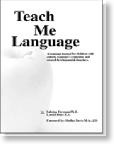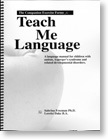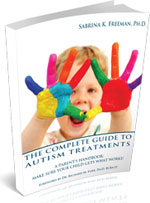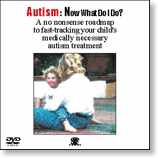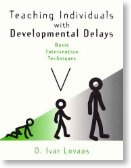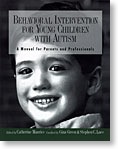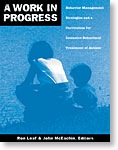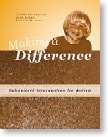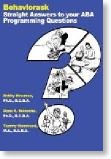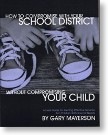play therapy
When play is no fun: The junk science of play therapy for kids with autism
18/05/12 18:24 Filed in: autism | Asperger's Syndrome
It only takes a quick scan of the news to spot two new attempts to use variations of play therapy (or child-led therapy) to address the vexing condition of autism.
First, the Wall Street Journal, in its “In the Lab” section which highlights new scientific research, apparently falls victim to the same faux elixir that journalists have lapped up for the last three decades; however, this time, academic legitimacy is being used by the Kennedy Krieger Institute in its test of early intervention play groups on children who are at risk for autism.
Second, Autism Speaks is sponsoring the Toddler Treatment Network (TTN)which researches treatments that are appropriate for children under eighteen months of age. Although the TTN is involved in research, they are also attempting to get developmental interventions covered by insurance, doing so by conflating behavioral and developmental approaches. The TTN states: “But there is no hard and fast line between behavioral and developmental approaches.” This blurring between developmental and behavioral approaches further adds confusion. Many purveyors of play therapy or child-led therapy call their so-called treatments developmental. These developmental therapies suffer from a lack of evidence in terms of efficacy. This goes for Floortime, the Playschool and the SCERTS Model to name just a few child-led, parent facilitated therapies.
What is different about these latest attempts at legitimating yet a new form of play therapy is that first, the therapy is being used with children who are at risk for autism but don’t yet have the diagnosis. Second, this form of developmental therapy is creeping into mainstream academe, despite its stark lack of supporting data regarding therapeutic effectiveness.
Should we be concerned about this latest attempt to associate play and autism treatment? Yes. I would submit the following:
Three decades of research on various forms of developmental, child-led, play therapy have shown the method to be utterly ineffective as a treatment for children with autism. Recent work conducted by the Kennedy Krieger Institute or the Autism Speaks Toddler Treatment Network does not appear to have changed that fact.
First, the Wall Street Journal, in its “In the Lab” section which highlights new scientific research, apparently falls victim to the same faux elixir that journalists have lapped up for the last three decades; however, this time, academic legitimacy is being used by the Kennedy Krieger Institute in its test of early intervention play groups on children who are at risk for autism.
Second, Autism Speaks is sponsoring the Toddler Treatment Network (TTN)which researches treatments that are appropriate for children under eighteen months of age. Although the TTN is involved in research, they are also attempting to get developmental interventions covered by insurance, doing so by conflating behavioral and developmental approaches. The TTN states: “But there is no hard and fast line between behavioral and developmental approaches.” This blurring between developmental and behavioral approaches further adds confusion. Many purveyors of play therapy or child-led therapy call their so-called treatments developmental. These developmental therapies suffer from a lack of evidence in terms of efficacy. This goes for Floortime, the Playschool and the SCERTS Model to name just a few child-led, parent facilitated therapies.
What is different about these latest attempts at legitimating yet a new form of play therapy is that first, the therapy is being used with children who are at risk for autism but don’t yet have the diagnosis. Second, this form of developmental therapy is creeping into mainstream academe, despite its stark lack of supporting data regarding therapeutic effectiveness.
Should we be concerned about this latest attempt to associate play and autism treatment? Yes. I would submit the following:
- At Risk for Autism is not Autism. The Kennedy Krieger Institute conducts research on children who are between one and two years of age whom they consider to be “at risk” for autism. It is highly irregular -- and suspect -- to utilize a non-diagnosis of “at risk for autism” as the basis of research to test any autism treatment, and in this instance, a reincarnated form of play therapy. Kennedy Krieger researchers are unwittingly (perhaps) stacking the deck for a form of play therapy to register as a legitimate intervention for the condition. “At risk” for autism, is clearly not equivalent to autism!
- Even more outrageous is that the program for two year olds who have all been diagnosed with autism at the Kennedy Krieger Institute does not include best practices, which is intensive behavioral treatment; rather, these children are participating in an experimental intervention model run by a speech and language pathologist!
- The intervention model is not being tested with a control group! Are they performing comparative tests between children at risk using their form of play therapy, against children receiving best practices Behavioral Treatment for autism? No. Inexplicably, the intervention model is a form of play therapy only.
- Parents as therapists. Once again, researchers are using parents as therapists because it’s cheap! The Autism Speaks “expert” states: “One potential way to increase intervention hours is for parents to continue practice at home.” If the Autism Speaks Director of Research for Environmental Sciences had a child with autism and were to take her own advice, she would most likely have to trade her career at Autism Speaks for her new role as free parent labor for autism therapy. Only with autism do so-called experts have the temerity to suggest that parents should “treat” their own children.
- Segregation from the earliest age. We are now segregating children from their typically developing peers at age one, even before a diagnosis is made, in an attempt to “help” them.
- Proliferate a treatment with scant evidence. The Kennedy Krieger researchers have indicated their desire to transfer this “method” of autism intervention into public school settings, which will further decrease the ability of schools to succeed with children afflicted by autism.
Three decades of research on various forms of developmental, child-led, play therapy have shown the method to be utterly ineffective as a treatment for children with autism. Recent work conducted by the Kennedy Krieger Institute or the Autism Speaks Toddler Treatment Network does not appear to have changed that fact.


